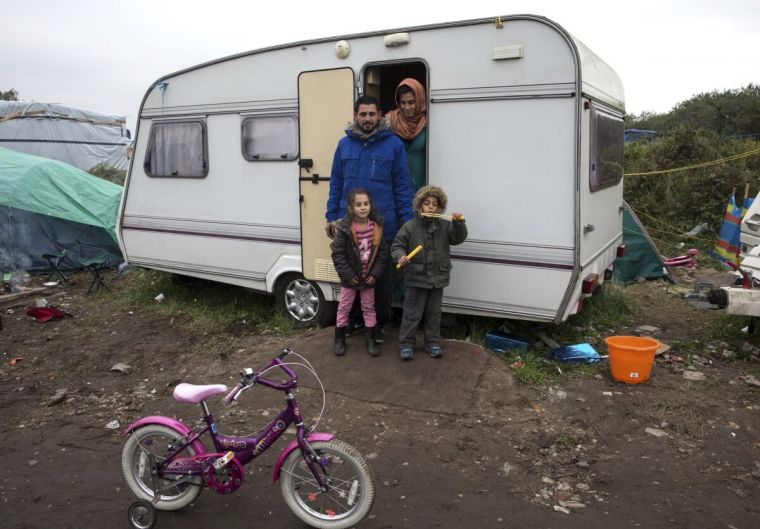Calais: 3,500 refugees fear sickness and death as temperatures drop
Refugees camped on France's north coast continued their bids to reach Britain on Thursday as the first autumn winds blew into their sprawl of tents and shanties and EU leaders arrived in Brussels, 200 km away, to discuss the broader crisis.
More than 3,500 people fleeing war and poverty in North Africa, the Middle East and elsewhere are camped around the town of Calais. They try time and again to get onto trains and vehicles heading for Britain on ferries or through the Channel Tunnel that links the two countries. At least 12 have died since June in or near the tunnel.
A team of Reuters reporters saw groups of people going onto rail tracks and heading for the tunnel through gaps in the fence and, in one place about 3.5 km (2.2 miles) from the tunnel entrance, through an open gate.
Nearby, they tried to open their doors of lorries queued up to enter the port on an approaching motorway. Police arrived periodically, opened truck doors in a hunt for stowaways, and shooed them away - a repeat of scenes that have played out daily for months.

Back in the so-called "jungle" of camps, inhabitants say falling temperatures are making life harder, even though some tents appeared to have given way to more wooden structures and make-shift shops and services than there were in June.
"It's so difficult here. We have no electricity, no water. It's very cold so we sleep with our clothes and rain coats. We stay in our tents with sleeping bags and blankets. So many people are getting a cold," said a man who gave his name as Kazhen, 27, from Kurdistan.
Ibrahim, 25, from Iraq, has made a home with his wife and children, aged six and five, in a caravan.
"It's slowly, slowly starting to become colder and I don't know what are their plans, these people, because if it starts snowing, most of the people, they're going to start coughing and getting sick and probably dying in that jungle," he said.
France in August announced plans to build a camp this winter for as many as 1,500 people. Reports since then say the numbers living rough around the port city have swelled well beyond the 3,500 figure given by officials.
European leaders have struggled to find a practical answer to the surge of people arriving at their borders, and Calais is just one of the flashpoints - albeit a high-profile one on the northwestern edge of the continent.
Some 170,000 irregular migrants entered the European Union in September, the bloc's border agency Frontex said on Tuesday, taking the total for the year so far to 710,000.
The influx has plunged the 28-nation bloc into crisis. Its leaders are due to discuss their responses again at a summit in Brussels on Thursday and Friday.











